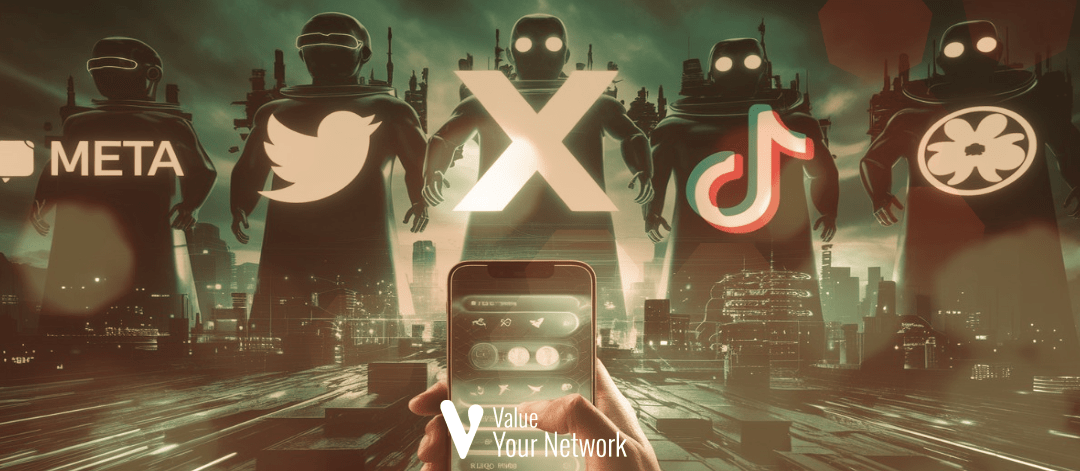Find out how tech giants like Meta, X and TikTok influence your choices through powerful algorithms, the attention economy and their global political impact.
The influence of tech giants on our daily lives is an undeniable reality. These platforms, whether Meta (Facebook, Instagram), X (formerly Twitter) or TikTok, are no longer simple communication tools. They have become real opinion leaders, playing a decisive role in the way we perceive the world. But how do these companies manage to influence billions of users every day?
The algorithm, a powerful tool to shape your reality
At the heart of tech giants’ influence are their algorithms. Designed to maximize user engagement, these programs analyze every click, like, and share to personalize the content presented to each user. That’s because algorithms don’t just serve up popular content; they actively shape your online experience.
A telling example is X, whose algorithm favors tweets that are likely to provoke strong reactions, whether positive or negative. This algorithmic bias creates “echo chambers,” where users are mainly exposed to ideas similar to their own opinions. This phenomenon amplifies societal divisions and reinforces prejudices.
Platforms like TikTok go even further with algorithms that can anticipate users' interests before they even realize it. By studying your interactions, they offer tailored content, keeping you captive in an endless loop of scrolling.
The attention economy: a lucrative model
To understand how tech giants influence your news feed, it’s essential to consider their business model. These companies operate on an attention economy, where the time you spend on their platforms is monetized.
Meta, for example, makes most of its revenue from targeted advertising. The more you interact with posts, the more the algorithm refines its understanding of your preferences, allowing it to serve you highly personalized ads. This personalization increases the chances of conversion, making each user a product sold to advertisers.
This race for engagement pushes platforms to promote controversial or sensationalist content, because it generates more interactions. This is how conspiracy theories or misleading information can be amplified, with sometimes serious consequences for society.
The political impact of social networks
Social media isn't just influencing your consumer choices; it's playing a growing role in the political sphere. Modern election campaigns now incorporate complex digital strategies, using targeted advertising and viral campaigns to mobilize voters.
Elon Musk, the boss of X, has openly supported conservative positions, transforming his platform into a space favorable to certain political discourses. Similarly, Mark Zuckerberg and Meta have been criticized for their role in spreading misinformation during major elections, particularly in the United States. These examples illustrate how tech giants can influence the public debate and influence millions of voters.
In Europe, the role of platforms in spreading extremist discourse or polarizing public opinion has prompted regulators to step in. The European Union’s Digital Services Act aims to hold platforms accountable, but implementing these regulations remains complex.
Decentralized platforms, a viable alternative?
Faced with the dominance of tech giants, alternatives like Mastodon and BlueSky are emerging. These decentralized platforms promise a user experience different, based on respect for privacy and community moderation. However, their adoption remains limited compared to behemoths like Meta or X.
BlueSky, for example, has seen its user base double in three months, but it still represents only a fraction of X's active users. For these platforms, the challenge is twofold: attracting a wider audience while avoiding the moderation problems that plague large networks.
What you need to remember
The influence of tech giants on users is based on sophisticated algorithms, an attention economy, and a power to shape public debate. While these platforms offer unique opportunities to connect and inform, they also raise crucial questions about their societal impact. Decentralized alternatives could be a solution, but their adoption remains marginal.
And you, do you think that tech giants should be more regulated?
